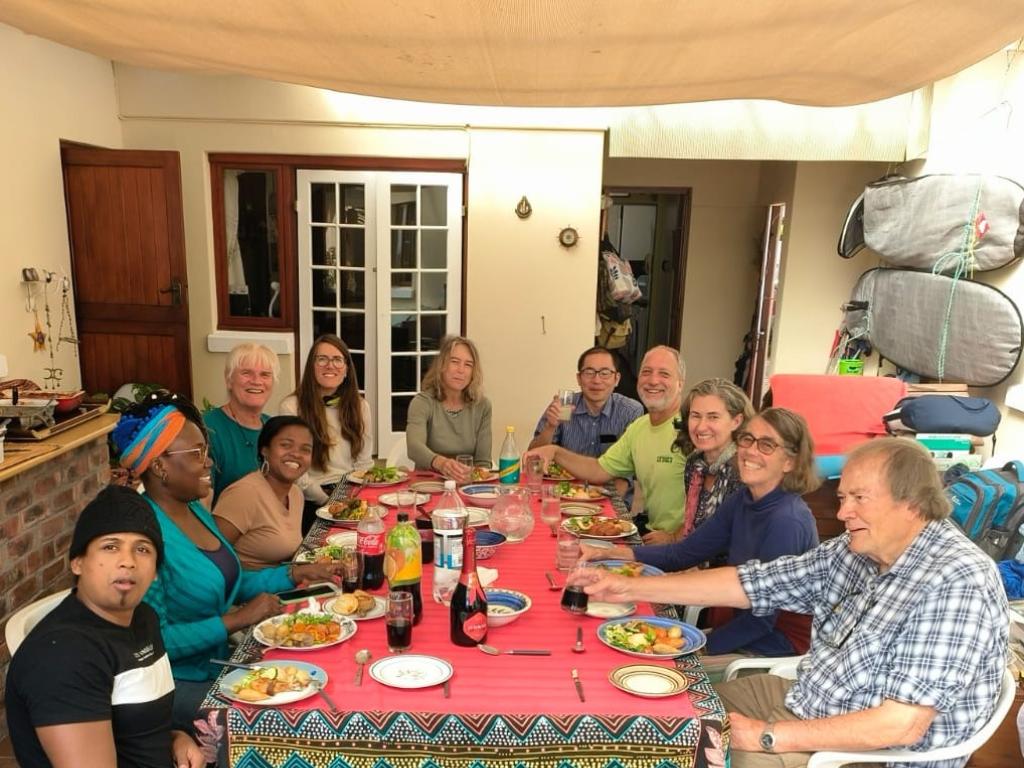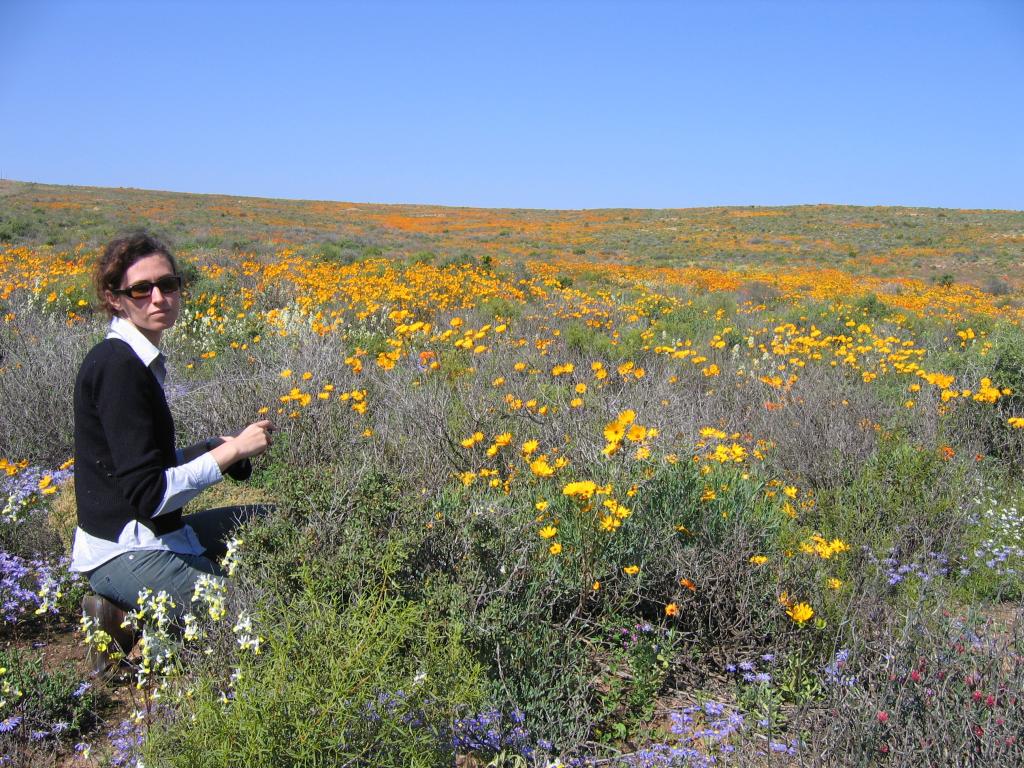The Plant Conservation Unit bids farewell to Professor Lindsey Gillson

The Plant Conservation Unit bids farewell to Professor Lindsey Gillson
On 10th April 2024 the Plant Conservation Unit held a farewell celebration in honour of Professor Lindsey Gillson’s 18-year journey at UCT. Her departure is a great loss for the Department and for the country. She leaves UCT as a full Professor and will go on to lead a major research institute, the Leverhulme Centre for Anthropocene Biodiversity, at York University in the UK.
Lindsey’s early training was in the UK. She completed a BA (Hons) in Pure and Applied Biology from the University of Oxford, an MSc in Environmental Technology from Imperial College, London, and a DPhil from the University of Oxford, specialising in the long-term ecology of east African Savannas. From 2002-2006, she was the Trapnell Fellow in African Terrestrial Ecology at the University of Oxford. In April 2006, at just 36, Lindsey joined UCT’s Botany Department, as it was then, as a Lecturer. She moved quickly through the academic ranks becoming a Senior Lecturer in 2009 and Associate Professor in 2011. In 2021, following more than a decade of hard work and dedication, Lindsey became a full Professor.
In the 18 years that Lindsey has been with UCT she has made an enormous contribution at many different levels. By focusing on a past-present-future continuum, she has carved out a unique research niche and, in the process, provided significant insight into the long-term dynamics of African ecosystems. Her projects have been wide-ranging and include an exploration of the long-term dynamics of southern African savanna and grassland ecosystems (with Abraham Dabengwa). She has also used palaeoecological and contemporary approaches to understand the impact of climate and land use change on the environments of Madagascar (with Estelle Razanatsoa, Andriantsilavo Razafimanantsoa and Fetra Randriatsara).
Other projects include an investigation into the use of palaeoecology in fire management and the restoration of degraded savanna ecosystems in Bwabwata National Park, in Namibia (with Glynis Humphrey, Conor Eastment, Adele Julier and others). Lindsey has also been active in the fynbos biome where she has worked on the long-term dynamics and resilience of forest-fynbos-karoo biome boundaries (with James MacPherson, Sabine Prader, Saul Manzano Rodriguez, and Glory Oden). She has also provided a long-term perspective of fynbos-renosterveld dynamics and its implications for management at Elandsberg Private Nature Reserve and the Groot Winterhoek Wilderness Area in the Western Cape (with Cherie Forbes).
Not only is Lindsey a top palaeoecologist with over 100 publications to her name but is able to interpret the findings from the past in terms of current ecological patterns and processes and relate these to the future. She is one of the very few palaeoecologists in the world who can translate her findings into practical applications as is evidenced by her 2015 book entitled: Biodiversity Conservation and Environmental Change: using palaeoecology to manage dynamic landscapes in the Anthropocene.
Besides her research, Lindsey has made many other contributions to the university. She has taught on a range of undergraduate and postgraduate courses including those dealing with Conservation, Ecosystem Management, Global Change, and Applied Palaeoecology. She played an important role in shaping the content of these courses and convened some of them for many years. Lindsey has also contributed enormously to the training of a cohort of Honours, MSc, PhD and Postdoc students from across Africa and the world. She has built long-term collaborative relationships with many of her students and her commitment to supporting and developing young academic talent from across the continent and especially from Madagascar is noteworthy and will, no doubt, continue for years to come.
Lindsey has received numerous awards in recognition for her work, in 2008 she was the recipient of the National Research Foundation’s President’s Award for Exceptional Research Potential, the UCT Science Faculty Young Researcher’s Award, and the UCT’s Fellows’ Award for Outstanding Scholarly Achievements. In 2019 she won the Vice-Chancellor Future Leader’s Award in recognition of her talents and contributions.
During the farewell celebration, the Plant Conservation Unit team expressed their gratitude for Professor Lindsey Gillson's remarkable contribution and their appreciation for the many ways in which she has impacted students and colleagues. At the farewell, Professor Timm Hoffman, the Director of the PCU expressed his appreciation for all that she has brought to the unit over nearly two decades. Her leadership skills and contributions to the PCU have been pivotal in creating a productive research entity within the department and a supportive space for the many students who form part of the PCU’s alumni. Lindsey’s appointment as Director of the Leverhulme Centre for Anthropocene recognises her achievements as an academic and as a leader in science. It is a significant milestone in her career, and we all wish her well in her new position.

Article written by Sonto Mtolo and Timm Hoffman. Photo credits: PCU team
